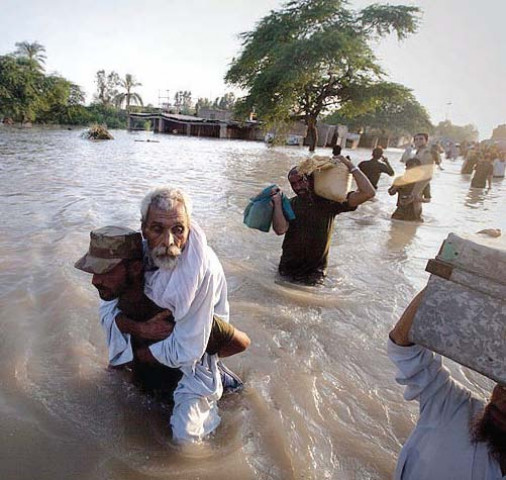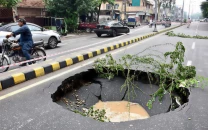Inefficient assistance: Flood relief in Punjab starts with a Rs4,000 fee
No channelling of relief work, aid being provided not in line with local needs.

Abdul Basit, a resident of Muzaffargarh, could not contain his shock when he learnt that he had to pay Rs4,000 to an NGO to process a flood relief grant of up to Rs25,000.
Perturbed, Basit spoke to others who had received financial assistance under the same scheme. To his surprise, everyone he spoke to had paid a different ‘processing fee’. Officials said they had shown him ‘papers’ as proof to substantiate their claim, however, Basit could not read.
Eventually, when a flood survivor contacted the regional office of the NGO Strengthening Participatory Organisation (SPO), officials were found embezzling funds.
Because of the scandal, the programme, which aimed to assist some 7,000 people, was halted after only 2,000 people had received aid. Nine officials of the NGO were sacked and are being interrogated, a high-ranking SPO official told The Express Tribune on condition of anonymity.
Apart from the problems that have arisen over the past year due to the non-existence of a central regulatory body for overseeing the rehabilitation process, initiated aid packages fail to comply with local needs.
“A team of workers from some NGOs and the United Nations distributed dry milk in our village. Many women mistook it for detergent,” said Muhammad Shafi, a resident of Moza Tatarwal in Rajanpur district. On the other hand, he said, local banned organisations received much more praise because they were familiar with the needs of the area.
Similarly, says Kashif Niaz from Muzaffargarh, some NGOs distributed diapers but they went to waste as locals were unfamiliar with their utility.
In Kot Addu, an NGO launched a project to build houses for those whose homes were swept away. But nothing more than foundations could be built and villagers are still waiting for representatives of the NGO to get back to them.
“Our land, [which] we could have cultivated, is occupied by the foundations,” said Abdul Rashid, a resident of Ghair Mustaqil Sharqi in Kot Addu.
The Punjab social welfare department says it has no jurisdiction over these NGOs. “Most of these donor agencies receive foreign funding which isn’t our domain. We just give them a no-objection certificate and cannot bind them,” a top official from the department said, requesting anonymity.
Published in The Express Tribune, August 6th, 2011.



















COMMENTS
Comments are moderated and generally will be posted if they are on-topic and not abusive.
For more information, please see our Comments FAQ